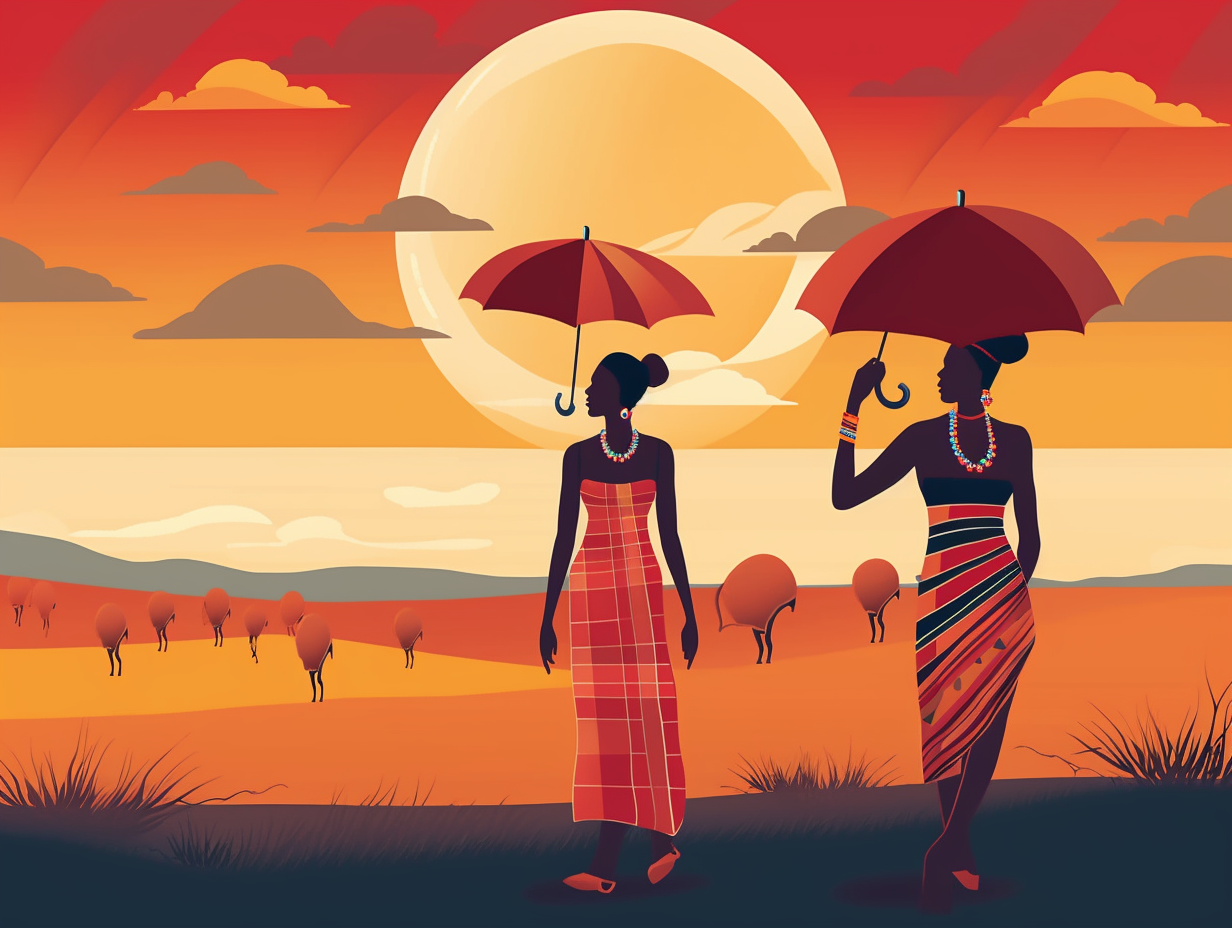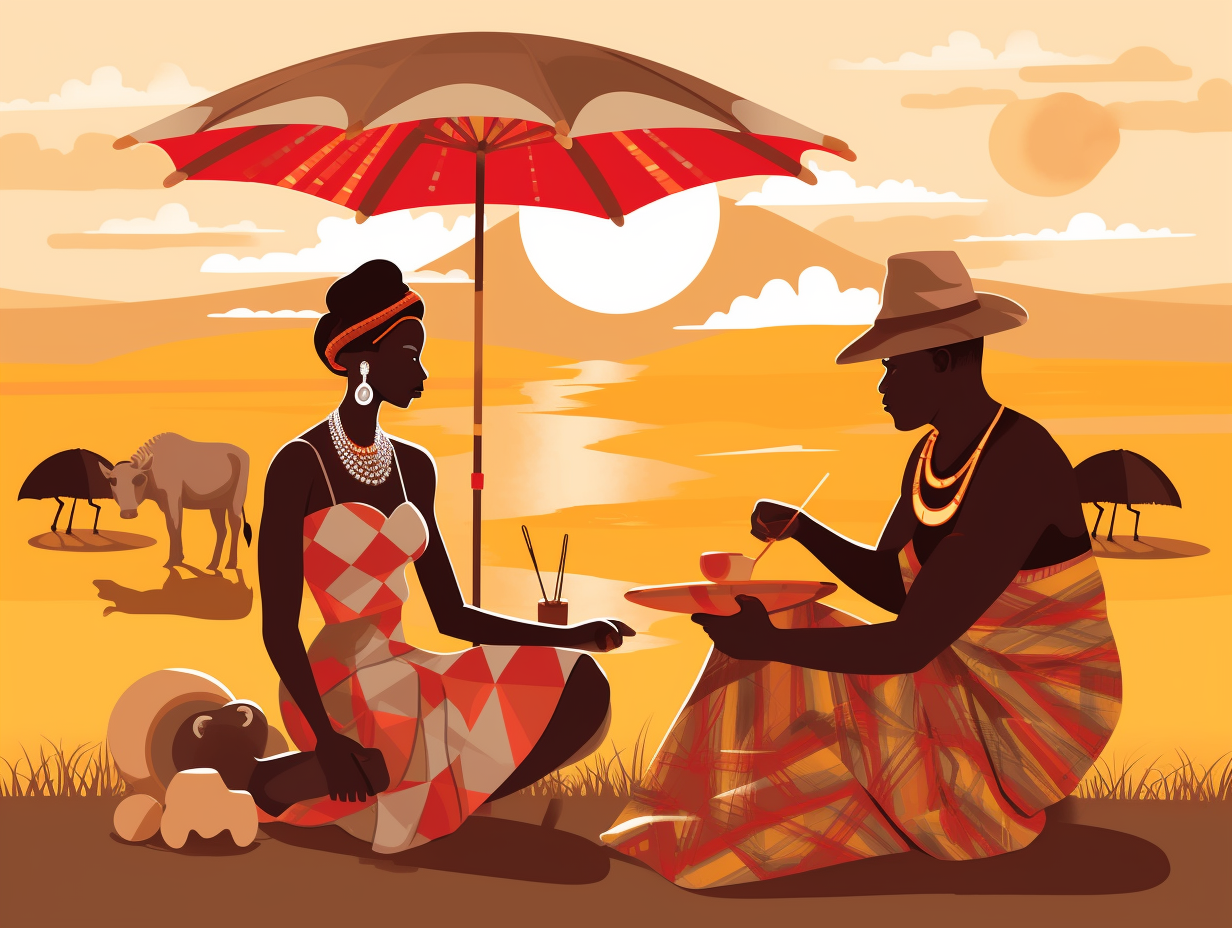Discover the Top 8 Intriguing and Entertaining Swahili Fun Facts You Never Knew!

1. The Multipurpose Magic of "Pole"
Hey there, linguistic world traveler! Buckle up and hold onto your "poles" as we dive into the versatile magic of a single Swahili word: "pole" isn't just for pole vaulters or tent enthusiasts - it serves as a multi-purpose greeting, apology, sympathy expression, and even a word of caution in Tanzania, where researchers are busy studying community health practices and attitudes.
Source => globalhealth.duke.edu
2. Swahili: Linguistic Cocktail Extraordinaire
Swahili, the ultimate mixologist of languages, borrowed so heavily from its neighbors that it's basically the "open bar" of the linguistic world: Around 40% of Swahili vocabulary comes from Arabic loanwords, and it's also infused with a blend of Portuguese, English, and German — making it a true linguistic cocktail.
Source => en.wikipedia.org

Discover the secret language of Boontling, spoken by less than 100 people in California and hiding in its unique vocabulary a blend of English, Scottish Gaelic, Irish, Pomoan, and Spanish! Unravel the linguistic mystery that once had its moment on The Tonight Show!
=> Fun Facts about Languages
3. Lion King: Swahili Pride in the Pride Lands
Hakuna Matata! The Lion King might have had you roaring with laughter at its animal antics, but did you know that the Pride Lands were heavily influenced by the Swahili language? That's right, the circle of linguistic life extends far and wide: all of the beloved characters' names have Swahili origins, with Simba meaning lion, Nala meaning gift, Mufasa meaning king, and even the lesser-known Rafiki and Zazu meaning friend and movement, respectively!
Source => languagetrainers.ca
4. Johann Krapf: Swahili Trailblazer
Before the days of language apps and Google Translate, the 1800s witnessed a "Swahililization" revolution led by the linguistic guru, Johann Ludwig Krapf: Krapf single-handedly created the first Swahili grammar and dictionary, opening up an era of smoother chats between European missionaries and East African locals, and securing Swahili's place as one of the continent's top lingua francas.
Source => en.wikipedia.org

5. Taste of Swahili: Tanzania's Culinary Delight
If you've ever wondered what Willy Wonka would whip up if he traded in his candy factory for a Tanzanian kitchen, look no further than Swahili cuisine: A delectable fusion of Arab, Indian, and Portuguese flavors, this East African culinary adventure boasts mouthwatering dishes such as Nyama choma, Wali na maharage, Pilau, Chipsi mayai, Ndizi na nyama, and the ever-present Ugali. Wash it all down with a swig of locally brewed beers like Tusker, Serengeti, and Kilimanjaro or fresh-pressed fruit juices – just remember, alcohol is only available in tourist spots in Muslim areas.
Source => africageographic.com
6. Taarab: Sultan's Swahili Music Extravaganza
Party like a Swahili Sultan: Taarab music – when East Africa meets Arabian flair! Originating in Zanzibar and Tanzania during the late 19th century, Taarab is a music genre which melds African Great Lakes' rhythms with North African, Middle Eastern, and Indian subcontinental vibes. Sultan Seyyid Barghash bin Said, surely a music aficionado, brought an Egyptian Taarab ensemble to his palace and set the stage for women to groove their cares away in coastal East Africa from then on.
Source => en.wikipedia.org
7. Swahili: From Lion King Lingo to the UN
Swahili, known by some as the lingo of Lion King and “Hakuna Matata” enthusiasts, has apparently charmed millions with its catchy tunes and phrases, from Pride Rock to the United Nations: Boasting 80 million speakers worldwide, it's now taught in South African, Botswana, Namibia, Ethiopia, and South Sudan schools as a unifying language of Africa, and the UN celebrates Swahili Language Day on 7 July to honor Julius Nyerere's use of Swahili for African independence struggles.
Source => en.wikipedia.org
8. Swahili & Arabic's Playdate of Words
Swahili: the linguistic love child of the East African coast and Arabian Gulf, who couldn't resist borrowing words from each other at every playdate: has adopted numerous Arabic terms, such as religious words like Ramadhan and Idd, trade-related words like bidhaa and dhahabu, and cultural words like amani and rafiki, thanks to centuries of lively interaction between the two regions.
Source => scielo.org.za







